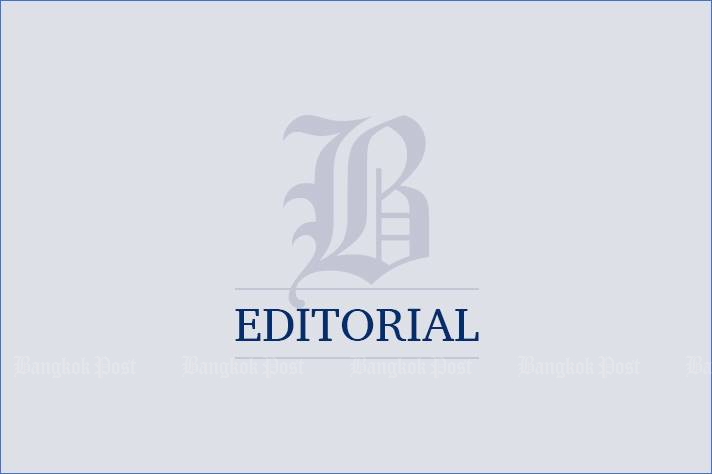
On April 30, journalist Chen Jieren was sentenced to 15 years in prison for a number of charges, including "attacking and vilifying" the Chinese Communist Party and government.
Mr Chen, who had once worked for a number of prominent state news outlets, was later relegated to publishing investigative reports and other commentary on social media after summarily being fired for his criticism of the authorities and anti-corruption exposes.
Chinese human rights defenders called on authorities to "immediately and unconditionally release journalist Chen Jieren and his family and associates, who have been prosecuted over Mr Chen's exercise of his right to free expression".
As noted by Taiwan News, Mr Chen was sentenced along with other human rights activists in the run up to World Press Freedom Day on May 3, "demonstrating China's view on freedom of speech has not been affected by the coronavirus pandemic". The media noted the 15-year sentence is one of the harshest moves yet against free speech by the government under President Xi Jinping.
That Beijing would put a stamp on World Press Freedom Day by jailing journalists and activists is unsurprising. The Committee to Protect Journalists said in a 2019 report that China had jailed more journalists than any other country, with at least 48 behind bars that year. Many were accused of undermining the state by producing fake "news".
Meanwhile, Reporter Without Borders' (RSF), in its most recent 2020 World Press Freedom Index, ranked China 177th out of 180.
Chinese Foreign Ministry spokesman Geng Shuang lashed out at that assessment by accusing RSF of spreading "fake news" fuelled by "prejudice" against China. The RSF countered that "the only prejudice that Beijing can attribute to RSF, an international organisation defending journalism, is to consider that trampling on press freedom is in no case legitimate". But Beijing's appeal to pathos is predictable, as it has increasingly accused its critics of "Sinophobia" as a means to deflect attention from myriad abuses.
For example, on Feb 19, after three journalists from The Wall Street Journal were ordered to leave China after the publication of an editorial critical of China's initial response to the coronavirus crisis, Mr Geng decried the piece as "racially discriminatory", claiming it "slandered the efforts of the Chinese government and the Chinese people to fight the epidemic".
The purpose of China's appeal to racial discrimination is two-fold. First, Beijing is hoping to leverage racial sensitivities in the West to deflect genuine criticism of its policies. Secondly, the country is relying on the long-standing authoritarian tactic of making the government's interests synonymous with the citizenry. Ergo, to call out Beijing for locking up journalists, imprisoning Uighur Muslims en masse, killing and harvesting the organs of Falun Gong practitioners, or its Covid-19 response, one is no longer validly criticising government policy, but is rather engaging in racial abuse.
And in all of the above cases, rather than addressing those accusations, China has sought to censor debate at home and abroad. These tactics, however, have done a great deal to undermine faith in Beijing's efforts to tackle the coronavirus pandemic. It is unsurprising that Donald Trump, with his own authoritarian tendencies, would seek to deflect attention from his chaotic Covid-19 response by claiming, without evidence, the pandemic is the result of a laboratory accident in China.
It is China's own concerted effort to stamp out transparency at any cost, however, that has given Mr Trump grist for the mill. For the less people are willing to believe in something, the easier it is to make them believe in anything.
The Soviet-born author Peter Pomerantsev wrote about this contradictory state -- the gullible cynic -- in which people give up faith in institutions and lose their values, which ironically makes them highly susceptible to being spun into a conspiratorial vision of the world.
And knowing their own population has been primed for a lack of institutional trust, it is likewise unsurprising that before Mr Trump's own bold claim, Chinese Foreign Ministry spokesman Zhao Lijian in March floated the conspiracy theory that it might have been the "US army who brought the epidemic to Wuhan" in an effort to pass the buck.
But every time a journalist like Chen Jieren is imprisoned for alleging fraud and corruption by regional party officials, every time a whistleblower like the late Li Wenliang is silenced for attempting to expose the coronavirus risk, and every time China tries to stifle revelations it has been running "a global disinformation campaign to deflect blame for the outbreak", the risk of being imprisoned in a world of conspiratorial thinking grows. Sadly, that likely suits the ruling elite in China just fine. But the damage done to the global civil society is immense.
